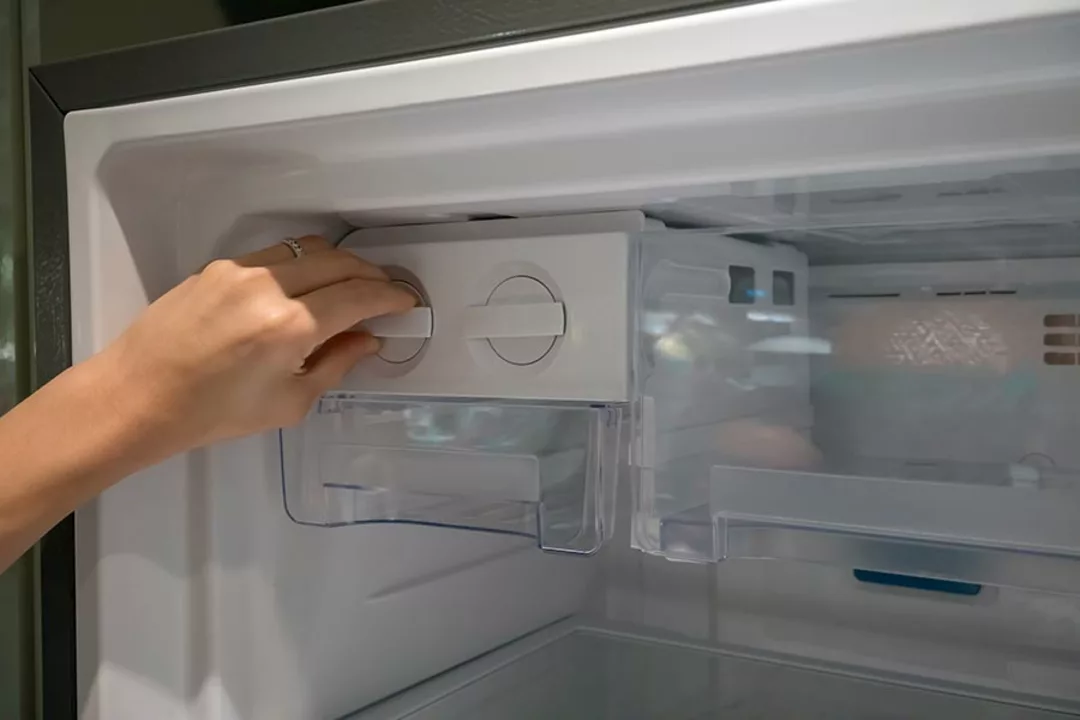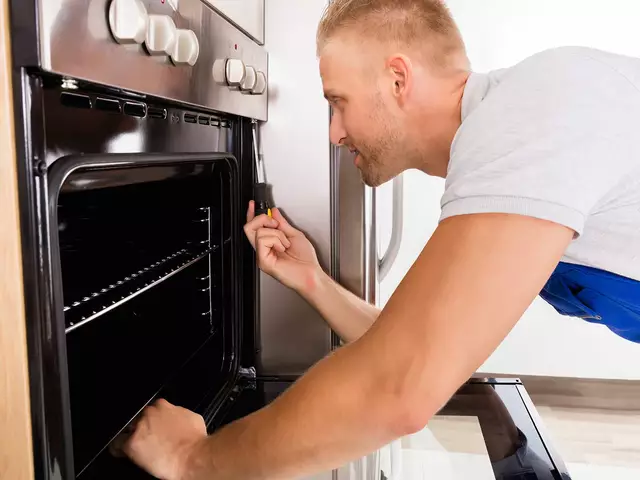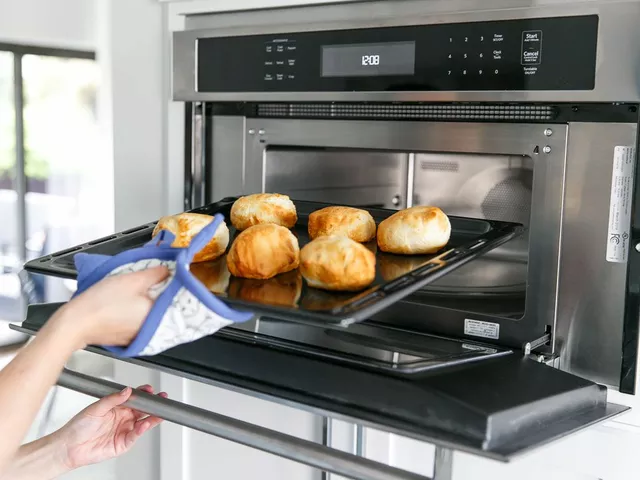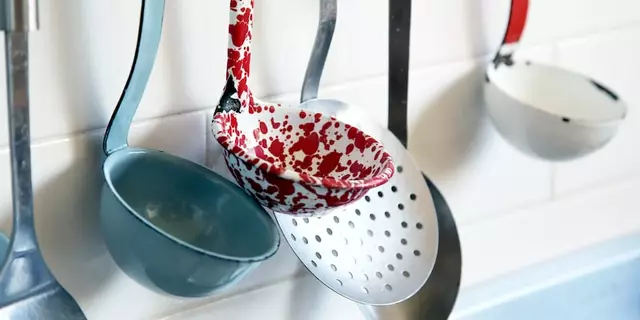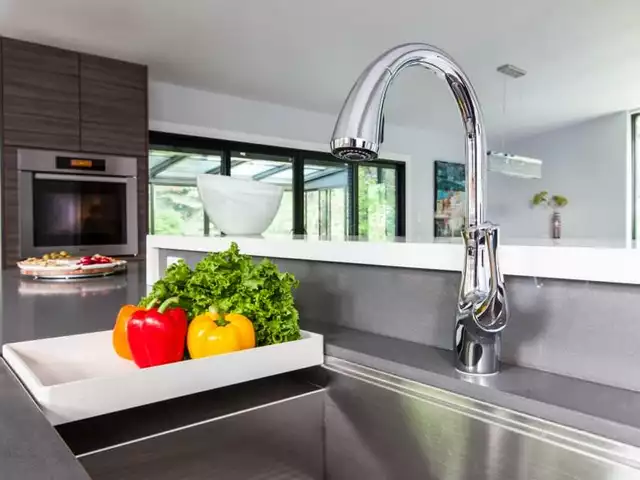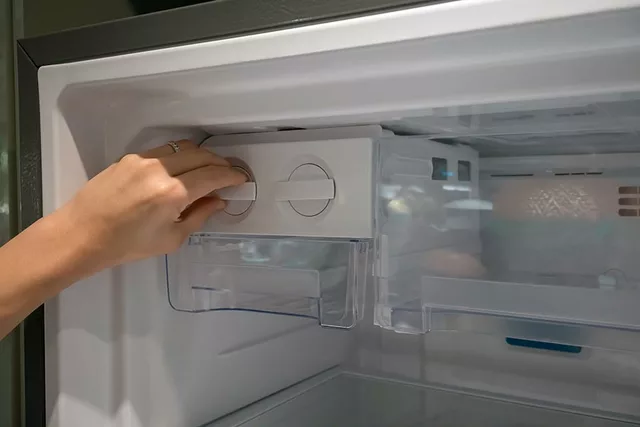Identifying Common Causes of a Refrigerator Not Making Ice
If you've noticed that your refrigerator is not making ice, it can be a major inconvenience. Fortunately, most of the time, this is an easy fix and doesn't require a pricey service call. Identifying the cause of a refrigerator not making ice is the first step to resolving the issue.
The first thing to check is if the ice maker is receiving power. If the ice maker is unplugged, or the plug is loose, it may not be getting any power. If the plug is secure, check the circuit breaker and reset it if necessary. To reset a circuit breaker, flip the switch off and then back on.
If the power is on, check the water line that supplies the refrigerator. The water line can be easily accessed by looking behind the refrigerator. The water line should be connected and the shut-off valve should be open. If it is not, turn the shut-off valve clockwise to open it.
If the water line is connected, check the water pressure to ensure it is at an appropriate level. If the water pressure is too low, it will affect the ice maker's ability to produce ice. Low water pressure can also cause the ice maker to make smaller than normal cubes.
If the water line, power, and water pressure are all good, check the ice maker's settings. There should be an ice maker on/off switch located on the outside of the refrigerator. Make sure that the switch is set to the 'on' position. There may also be a switch inside the freezer that needs to be set to the 'on' position.
Finally, check the ice maker's motor and auger. The motor should be running when the ice maker is on, and the auger should be turning. If the motor and auger are not running, the refrigerator may need to be serviced. This could be due to an issue with the ice maker's wiring or other components.
By following these steps, you can identify the cause of a refrigerator not making ice. If the issue persists, contact a professional appliance repair technician for assistance.
How to Troubleshoot a Refrigerator That Has Stopped Making Ice
Refrigerators are a crucial part of everyday life. We rely on them for keeping our food fresh and cool, but when a refrigerator stops making ice, it can be a major inconvenience. Fortunately, there are a few simple steps you can take to diagnose and fix the problem. Below, we’ll go over some of the common causes of a refrigerator that has stopped making ice and how to troubleshoot each one.
Check the Power Supply
The first step in troubleshooting a refrigerator that has stopped making ice is to check the power supply. Make sure the refrigerator is properly plugged into a working outlet and that the outlet is receiving power. If the outlet is not working, you may need the assistance of a licensed electrician to replace or repair it. If the outlet is working, check the power cord for any visible damage.
Check the Water Supply
If the power supply is in working order, the next step is to check the water supply. If the refrigerator has a water line connection, make sure it is properly connected. If the refrigerator is connected to a water line, but the ice maker is still not producing ice, check the water filter and replace if necessary. If the refrigerator is not connected to a water line, make sure the reservoir is filled with water.
Check the Ice Maker
If the water supply is functioning properly, then it’s time to check the ice maker. Make sure the on/off switch is in the on position and that the ice maker arm is in the down position. If the arm is stuck, you may need to manually move it to the down position. Also, make sure the ice maker is getting power by checking the wiring and electrical connections.
Check the Temperature Settings
Finally, check the temperature settings on the refrigerator. The ideal temperature setting for the refrigerator should be between 34-37 degrees Fahrenheit. If the temperature is too high, the ice maker won’t be able to produce ice. If the temperature is too low, the ice may not be able to release from the ice maker.
Conclusion
Troubleshooting a refrigerator that has stopped making ice can seem daunting, but it doesn’t have to be. By following the steps outlined above, you can quickly diagnose and fix the problem. If you’re still having difficulty, you may need to contact an appliance repair technician for further assistance.
The Benefits of Regular Refrigerator Maintenance to Prevent Ice Maker Malfunctions
It may seem like a hassle, but regular refrigerator maintenance can make all the difference in preventing ice maker malfunctions. A well-maintained refrigerator is more energy efficient and will keep your food and beverages at a safe temperature. It can also help minimize the risk of costly repairs due to malfunctions in the future. So, why is it so important to keep up with regular refrigerator maintenance? Here are just a few of the reasons.
Extended Life Span
Regular refrigerator maintenance helps to extend the life of the appliance. By cleaning and inspecting the refrigerator on a regular basis, you can catch any potential issues before they become larger problems. This can help to prevent unnecessary wear and tear on the refrigerator and extend its life span. Additionally, you can use the maintenance schedule to replace parts that are worn or malfunctioning before they cause a problem.
Reduced Risk of Expensive Repairs
Catching problems early can help to reduce the risk of expensive repairs in the future. A malfunctioning ice maker can be especially costly to repair if it’s not addressed in time. During regular refrigerator maintenance, minor repairs can be identified and addressed before they become major problems. This can help to save you time and money in the long run.
Preventative Maintenance
Preventative maintenance can also help to reduce the risk of malfunctioning ice makers. Regular cleaning of the condenser coils and other parts of the refrigerator can help to keep it running efficiently and at peak performance. Additionally, it can help to reduce the buildup of dust, dirt, and other debris that can interfere with the proper functioning of the ice maker. This can help to reduce the risk of malfunctioning ice makers and extend the life of the refrigerator.
Energy Efficiency
Regular maintenance can also help to improve the energy efficiency of the refrigerator. By cleaning and inspecting the refrigerator on a regular basis, you can help to reduce the amount of energy it uses. This can help to save you money on your monthly energy bills and make your refrigerator more environmentally friendly. Additionally, it can help to reduce the risk of a malfunctioning ice maker due to a lack of energy.
Overall Quality
Finally, regular refrigerator maintenance can help to improve the overall quality of the appliance. By inspecting and cleaning the refrigerator on a regular basis, you can help to ensure that it is running properly and that all of the parts are functioning correctly. This can help to reduce the risk of malfunctioning ice makers and ensure that your refrigerator is running at peak performance.
Overall, regular refrigerator maintenance is essential for preventing ice maker malfunctions. By cleaning and inspecting the refrigerator on a regular basis, you can help to extend its life span, reduce the risk of expensive repairs, improve energy efficiency, and ensure overall quality. So, next time you're considering whether or not to take the time for regular refrigerator maintenance, remember that it can make all the difference in preventing ice maker malfunctions.
